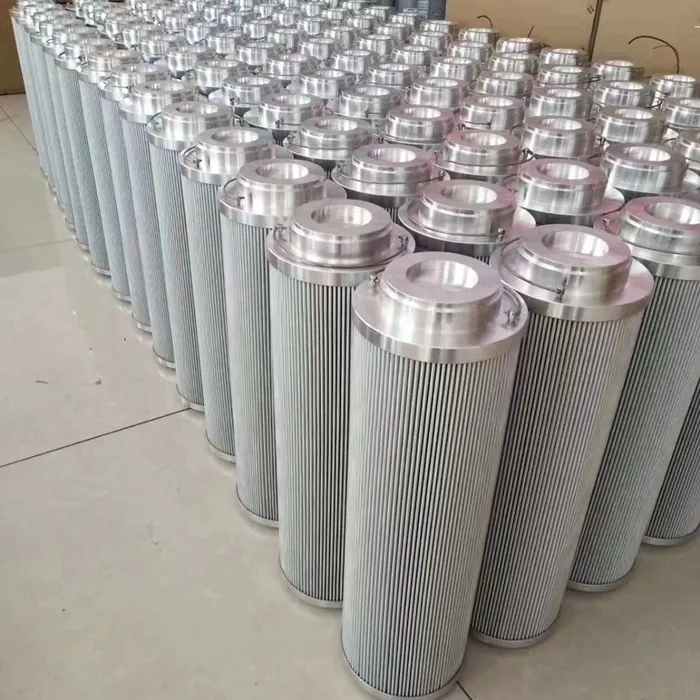 Tel:
+8618931101301
Tel:
+8618931101301
dec . 16, 2024 09:57 Back to list
Electrostatic Protection Through Advanced Filter Element Technology
Understanding Antistatic Filter Elements Importance and Applications
In various industrial applications, especially those involving the manipulation of powders, granules, or other particulates, the risk of static electricity buildup can pose significant challenges. Antistatic filter elements play a crucial role in managing electrostatic discharge (ESD) risks and enhancing workplace safety. This article delves into the importance of antistatic filter elements, their applications, and how they work to mitigate static-related hazards.
What Are Antistatic Filter Elements?
Antistatic filter elements are specialized filters designed to prevent the accumulation of static electricity on the filter surface and the surrounding environment. They are commonly employed in air filtration systems, industrial vacuum cleaners, and other equipment handling fine particulates. By incorporating conductive or anti-static materials in their design, these filters can effectively dissipate static charges, reducing the chances of static sparks that can lead to explosions or fires, particularly in environments with flammable materials.
Importance of Antistatic Filter Elements
1. Safety Compliance Many industries are subject to stringent safety regulations concerning static electricity. Industries like pharmaceuticals, food processing, and chemicals must implement safety measures to safeguard against static-related hazards. Antistatic filter elements help in complying with these safety norms, protecting both employees and products.
2. Enhancing Equipment Performance Static electricity can hinder the performance of machinery and equipment. For instance, it may attract dust and particulates to sensitive components, leading to premature wear and increased maintenance costs. By utilizing antistatic filter elements, industries can ensure cleaner air quality and improve the operational efficiency of their equipment.
3. Preventing Contamination In cleanroom environments, maintaining air quality is paramount. Antistatic filter elements not only filter out airborne contaminants but also reduce the risk of particles adhering to surfaces due to static charge. This is particularly vital in semiconductor manufacturing and similar fields where contaminants can significantly impact product quality.
4. Environmental Protection As industries become more aware of their environmental footprint, antistatic filter elements contribute by minimizing the release of fine particles into the atmosphere. By maintaining better control over airborne dust and particulates, these filters support cleaner air and healthier environments.
Applications of Antistatic Filter Elements
antistatic filter element

1. Pharmaceuticals In pharmaceutical environments, where powders and granules are commonly handled, the presence of static electricity can lead to uncontrolled reactions or contamination. Antistatic filters are essential in maintaining a sterile environment, ensuring the integrity of pharmaceutical products.
2. Food Processing In food production, maintaining cleanliness is vital. Antistatic filter elements aid in preventing the accumulation of dust particles that may harbor bacteria and other contaminants, thereby ensuring food safety.
3. Chemical Manufacturing Chemical facilities often deal with combustible dust, making static management crucial. Antistatic filters are integral to extracting air from chemical processes, preventing explosive dust clouds and ensuring workplace safety.
4. Electronics Industry The electronics sector is highly sensitive to static electricity, which can damage delicate components. Antistatic filter elements are indispensable in cleanroom facilities and manufacturing lines, providing the necessary protection against ESD.
How Antistatic Filter Elements Work
Antistatic filter elements utilize various conductive materials, such as carbon fibers or metalized fibers, woven into the filter media. These materials facilitate the dissipation of static charges, ensuring that any built-up electricity is safely directed away. Additionally, these filters often possess a high airflow efficiency, meaning they do not compromise air quality while providing static control.
Some antistatic filters are treated with specialized coatings that enhance their performance, ensuring longevity and resistance to wear and tear even in demanding environments.
Conclusion
In summary, antistatic filter elements play a vital role in modern industrial applications by safeguarding against the dangers of static electricity. They enhance safety, protect equipment, and ensure product quality across various sectors, including pharmaceuticals, food processing, chemical manufacturing, and electronics. As industries continue to prioritize safety and efficiency, the importance of integrating antistatic solutions like filter elements into their processes will only increase. Adopting these technologies allows businesses to meet regulatory compliance, enhance operational longevity, and foster a safer working environment, thereby contributing to overall productivity and success.
-
The truth about washable filters: Does repeated use really not affect efficiency?NewsJun.25,2025
-
Effect of humidity on the performance of activated carbon filter elementsNewsJun.24,2025
-
Material selection considerations for dust removal filter elements under high temperature conditionsNewsJun.23,2025
-
Cold knowledge of air filters: Why are some designed to be pleated?NewsJun.16,2025
-
Factory direct supply! High-precision air filter element wholesale and customizationNewsJun.12,2025
-
A complete analysis of the practical value of activated carbon filtersNewsJun.10,2025

 Email:
Email:





